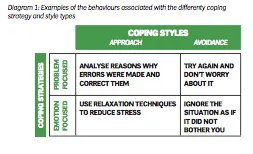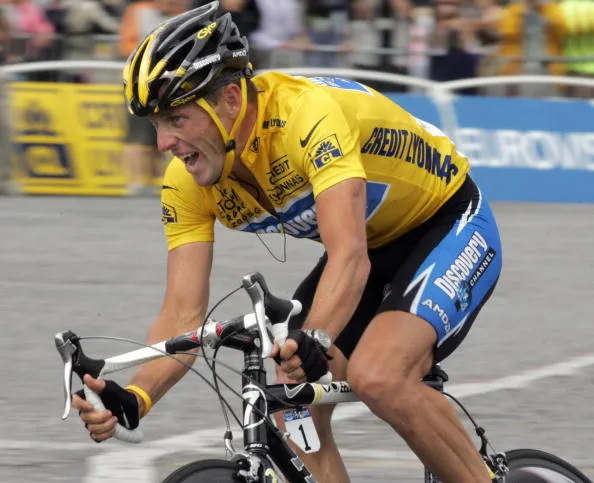People often ask me what the key differences between elite athletes and the rest of us are. While the characteristics are far too numerous to mention here, one key aspect that has been consistently found in elite athletes as opposed to us mere mortals is the ability to ‘cope’ with stressors by employing appropriate behaviours.
Correct coping
When faced with stress, in the form of an upcoming race, a training load or the feedback from a disappointing performance, for example, individuals cope in different ways. Coping in this instance is seen as the cognitive (ie, things we think) or behavioural (ie, things we do) responses to the stress, and it has become increasingly clear that elite athletes regularly employ the correct coping mechanisms to maintain motivation and promote the best possible performance levels.
Mark Anshel and his colleagues proposed a framework for understanding coping in 1997 and this is shown in diagram 1 below.

This diagram describes two main strategies for coping: problem focused or emotion focused. When faced with stress, coping responses can be characterised as problem focused if they attempt to deal with the problem causing the stress.
In cycling, if a regular source of stress is being out-sprinted in road race finishes, a problem focused coping strategy would be to alter some training component to help to develop the required sprint finish.
An emotion-focused response is one focused on coping with the stress itself by employing stress management techniques such as breathing techniques or positive self talk.
Just as there are two strategies for coping there are also two styles for implementing these strategies: approach coping or avoidance coping. Current thinking is that people are likely to be predisposed to a particular style so athletes are likely to prefer to use one or either style. Approaching is characterised by wanting to address the problem, get it out in the open and deal with it, while avoidance is the reverse – where removing the stressor and avoiding it in the future is preferred.
Pick the right response
Given these descriptions, it may surprise you that elite athletes are not found to consistently employ one style or strategy over another. Instead, research from a number of sources has continually found that top athletes employ the full variety of coping styles and strategies, but what sets them apart is they select the most efficient one for overcoming the stress they are facing.
By firstly recognising that stress can be responded to in a huge variety of ways, it is worth considering your ‘normal’ responses and whether employing a greater variety of responses could be beneficial to you.

